2017-06-04
Louder than Words
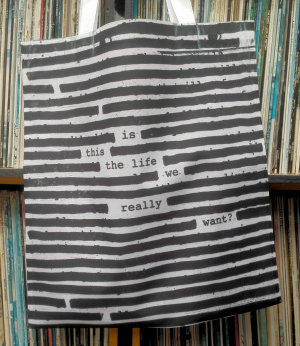
Perfect Sense
I'll start this Roger Waters solo history in 1983 and pretend The Body soundtrack (1970) never happened (it's definitively worth checking out and not only for the Waters compositions, if you don't mind the seventies tomfoolery).
The Final Cut (1983) was issued as a Pink Floyd album but is considered a virtual Roger Waters solo work with some guitar solos by David Gilmour and occasional percussion by that playboy drummer. Originally intended as a Wall spin-off it grew into a political manifesto against the Falklands crisis. And if that wasn't already mind-boggling enough Waters also recycled some early-Wall melodies that never made it on the double album because they weren't considered good enough by Bob Ezrin and co.
The Final Cut set the standard for his future solo projects that invariably contain a few good to excellent tracks, but unfortunately also a lot of monotonous rubble. Most of them are also packaged in puke-ugly covers.
The Pros And Cons of Hitchhiking (1984) is the third part in the Wall series, it even borrows some musical themes from that one. But just like in the original Planet Of The Apes franchise quality gradually degrades from sequel to sequel, from solo project to solo project.
Blowing in the Wind
Waters' contribution to the When The Wind Blows soundtrack (1986) takes a complete vinyl side. It contains roughly 12 minutes of experimental synth drones, sound effects and movie samples, sandwiched between one excellent and one just OK song. Towers of Faith has Waters at his best with vitriolic and sarcastic nags at the Pope and his former bandmates: "this band is MY band…" It’s a pity the track was put on a rather obscure soundtrack of a rather obscure movie, not the last time this would happen with his songs. (For the completists who will otherwise correct me: it can also be found on the Flickering Flame compilation.)
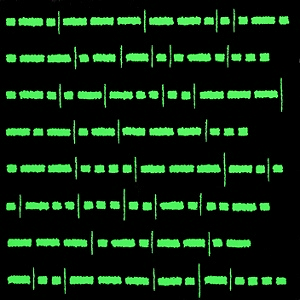
Radio KAOS (1987) is an even weirder one. It is built around a radio show and features poppy songs with a typical eighties rock radio sound. Although it sounds dated nowadays it is not half as bad as everyone pretends. One of the good things is that it is a single album. Roger Waters wanted to make it a double but this was vetoed against by the powers that be. Some of these rejected demos were put on B-sides, remember singles?, and I can only agree with those record executives. The only thing that suffered from the weeding is the concept, Radio KAOS is as odd and incomprehensible as one of those eerie second series Twin Peaks episodes.
When you can’t sell new records, sell old ones, Waters must have thought and The Wall Live in Berlin (1990) was born. It’s The Wall all over again, this time with guests, Bier und Bratwurst.
Not Amused at all
All this was just a general repetition for what Waters considers his magnum opus. When a colleague at work told me, 25 years ago, that the latest Waters record had a lot of explosions, I was not impressed at all. A record is not judged by the amount of sound effects, especially not when they interfere with the music. Amused To Death sounds as if a piano player is playing in the far corner of a crowded restaurant and all you hear is the rhubarby mumbling of the people, the clashing of cutlery, falling plates, waiters taking orders... Many will disagree but Amused to Death (1992) is Waters equivalent of Battle for the Planet of the Apes, it even has got a monkey on its fart-smelly cover. That record has all the tricks Waters is famous for: over the top shouting, tracks that are repeated over several parts, lists instead of lyrics and the drowning of the melody under a layer of sound effects… If Waters sings about a nuclear attack, you can bet your ass there will be missiles wooshing through your surround system for the next three minutes.

People might think I hate Waters, but this is not really the case. He genuinely surprised me with his In The Flesh tour and the highlights of The Final Cut, Pros And Cons and Amused to Death he brought there proves that Waters has some good songs in him.
This introduction has been going on too long, it fucking starts to sound like one of his albums, so we’ll skip his opera (everyone did) and the few excellent (Hello, I love you) and bad singles (Leaving Beirut) he made over the years.
Did I tell you that Waters is a man of continuous repetition…
When you can’t sell new records, sell old ones, so Waters had another go at The Wall, basically a lip-synch show with a video screen the size of a football field. For me this was the lowest point in his career despite the fact that he sold over four million tickets to the masses. (Read more at: Skeletons from the Kloset.)
But now, after some 25 years, there is a new Roger Waters record, and it's excellent.
Is This The Life We Really Want?
When We Were Young: a garbled introduction, taken from a Waters interview or monologue that gradually becomes clearer to understand. Personally it makes me think remotely of the Wish You Were Here radio introduction. Pink Floyd has of course a tradition of ambient opening tracks. Their last album had Things Left Unsaid that started with (equally garbled) Rick Wright and David Gilmour quotes, but borrowing is allowed among friends.
The intro segues into Déjà Vu that has been known since 25 September 2014 under the title Lay Down Jerusalem (If I Had Been God) when he performed it at the Russell Tribunal at the European Parliament in Brussels, Belgium, in support of the Palestinian people.
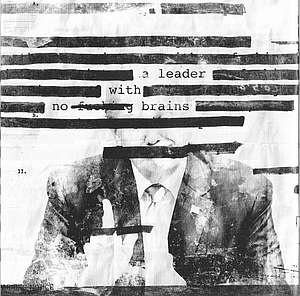
Luckily it is a far better opening song than What God Wants was (on his previous rock album), although it is pretty snotty to compare yourself with a deity. Waters would have been a pretty solid Roman emperor, he seems to think of himself. Rogergula.
The song itself is wonderful and reminds me of the best of The Final Cut with its piano and violin arrangement and some scarce sound effects that for once don't ruin the song. Probably producer Nigel Godrich is to thank for that. An anonymous source gave us the following snippet of a dialogue between the artist and his producer.
Roger Waters: "How many explosions can I have?"
Nigel
Godrich: "One."
RW: "One per song, cool."
NG:
"No, one in total."
RW: "Only one? Can I have some fucks
then?"
NG: "You can have as many fucks as you like."
(Despite the critique at several reviews and fora that there are too many swearwords on the album, I could only count seven fucks.)
The Last Refugee starts as an uncomplicated love song and has incredible beautiful and yet simple lines:
Show me the shy slow smile you keep hidden by warm brown eyes.
Waters proves that he is an excellent lyricist and singer, alternating softly sung parts with pieces where he vainly tries to suppress his anger. The atmosphere of the song and the way Waters sings it makes me think of Johnny Cash's Solitary Man, that was an opus of withheld emotionalism (not only on this song, by the way). Up till now we haven't heard a single guitar solo yet and that can only be regarded as a good point. It seems that Waters has finally got rid of Gilmour's shadow, whom he tried to replace in vain with Eric Clapton or Jeff Beck. This is a hidden gem that grows on you with every session and if you don't get a tear in your eyes, nothing will.
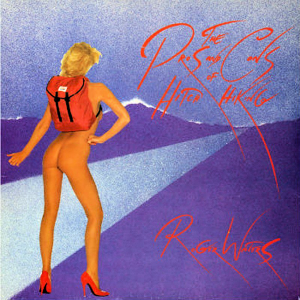
Picture That has a Welcome To The Machine rhythm just before Waters starts with a set of 'shopping list' lyrics, a trick he has used in his entire career and that he will repeat here as well on several songs. Do not expect that Roger pictures himself on a boat on a river, with tangerine trees and marmalade skies, quite the contrary, in his imagination kids run around with their hands on the trigger of a gun carefully avoiding wooden legged Afghans. There are quite some Floydian references for the perceptive fan, musically to Sheep (and Welcome To The Machine) and lyrically to Wish You Were Here that is sardonically linked to Guantánamo Bay. Roger's voice sounds coarse and rough throughout the track but the synthesizer sounds thin and the guitar doesn't snap to the beat. Not a bad tune, but it has something lacking to make it really great. It may be contradictory to what I wrote before but this track would have benefited from the over-the-top grandeur that only a full Pink Floyd treatment can give. Let's have some of Rick's Turkish Delight, please. Unless it was Roger's or Nigel's wish to make it sound as Thin Floyd. Still a fucking great skeleton of a song though, with obvious nods to his musical past.
Broken Bones starts like one of those more intimate Final Cut tracks (Southampton Dock, Paranoid Eyes) and has the default Waters screams whenever the refrain hits. Great little folkie tune, with a certain Bob Dylan feel, nothing more, nothing less, with a foul-mouthed Waters who isn't afraid to express his opinion:
We cannot turn back the clock
Cannot go back in time
But we can say:
Fuck you, we will not listen to
Your bullshit and lies
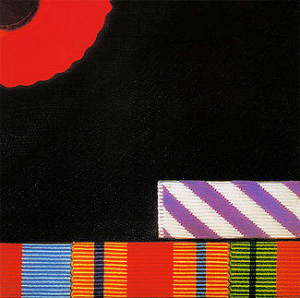
Is This The Life We Really Want? Surely the message is of more importance than the melody here, Waters acts almost as a beat poet. It has Waters reciting a shopping list again, like the following strophe:
toothless hags,
supermodels,
actors, fags,
bleeding hearts,
football stars,
men in bars,
washer women,
tailors, tarts,
grannies, grandpas, uncles, aunts,
friends, relations,
homeless tramps,
clerics,
truckers,
cleaning ladies,
ants...
But believe it or not, it really works in the context of the song. Great poetic track, with a sudden splash of surreal humour.
Bird In A Gale. When this track lifts off after the default TV and radio samples, it turns into a Floydian Sheep-pastiche with Waters' shouting his lines. There is a dog in the lyrics, hopefully not one of those Gilmourian dogs of war, and is that a cash register at the end or just some weird machinery clicking away the moments that make up a dull day? Up till now the flow of the record has just been perfect, although this track is, in my opinion, of lesser quality. It simply tries to hard to mimic Floyd, including the repeating echoes at each line, line, line, line, line...
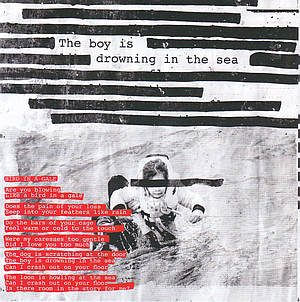
The Most Beautiful Girl In The World, the six minutes track takes longer as its subject as she is already finished off in the third line of the song 'like a pearl crushed by a bulldozer'. A typical album track, not really one we'll remember as being the highlight of this album, but not bad either. A bit like Gilmour did on Rattle That Lock with the throwaway song The Girl In The Yellow Dress, but at least she managed to survive till the end.
This one needs some extra attention to really get into and should probably be listened to on its own. The lyrics are also quite hermetic and if someone can explains me what it is really about, then thanks. The last strophe is particularly moving with the I'm coming home, bit. Perhaps if I give it some time, it could grow into a favourite. (But who has time, nowadays, for that?)
Smell The Roses is the least original song of the album. It takes its melody from Have A Cigar, has a mad dog on a chain barking, an obscured by clouds guitar at the interlude and a Floydian girlie choir. But just because it sounds so familiar and is full of clichés it rapidly grows into an earworm.
Wait For Her / Oceans Apart / Part Of Me Died. The last song is a three-parter that has been given separate titles.
The first part undoubtedly is a poetic song about love (and for perverted minds: lovemaking), but in the last strophe there suddenly is a 'last fusillade' whatever that means. The lyrics are inspired by a poem (with the same title) from Palestinian poet Mahmoud Darwish and some lines have been taken literally from the original (Wait For Her by Mahmoud Darwish).
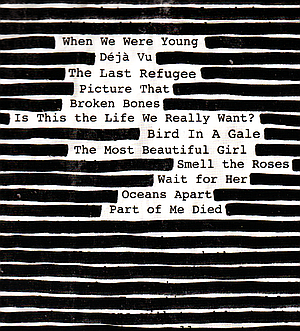
Oceans Apart is a short, one strophe, musical bridge between part one and three, making it clear that the woman he sings about is the love of his life.
Part Of Me Died has Waters listing again, this time it's a collection of his bad characteristics (or so it seems) that the woman he loves has made disappear. It is a very introspective Waters who ends the record with:
Bring me my final cigarette
It would be better by far to die in her arms
Than to linger
In a lifetime of regret
Roger Waters writing a dark love-song, who would ever guess that? It's simple, it's dumb, but Roger Waters has finally proven again he still is the pilot of the Pink Floyd airship.
I never thought I would come to this conclusion, but Is This The Life We Really Want? is a fucking good Roger Waters record, the best since The Final Cut if you ask me. Luckily it has a spit-ugly cover and almost undecipherable lettering so I can still end this review on a grumpy note.
An essential album.
♥ Libby ♥ Iggy ♥

